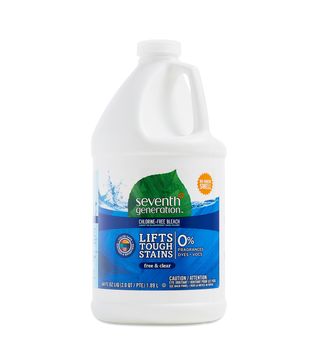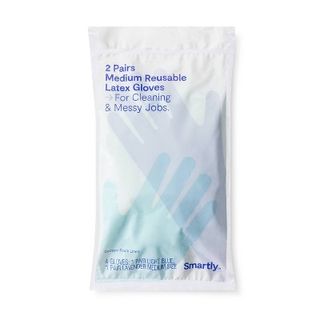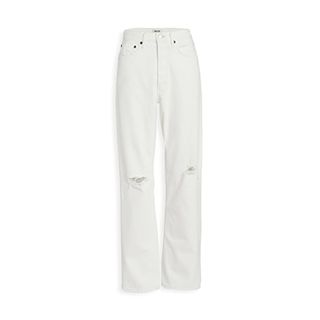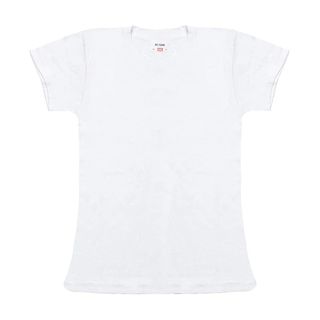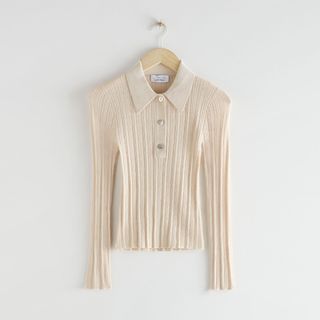How to Bleach Clothes (Without Damaging Them)

Bleach often gets a bad rap—it’s an agent that’s made to sanitize, brighten, and brilliantly clean clothing, but like many powerful substances, it can also have disastrous results if used incorrectly. And while bleached and distressed denim has its time and place, this is probably not a look you want to unintentionally inflict on your entire wardrobe. Rather than eschew bleach entirely, it’s a good idea to learn how to bleach clothes properly. Read on to see how it’s done.
1. Make Sure Your Clothing Can Handle It

Needless to say, not all clothing is made to be bleached. Check the tag (many clothing labels will note whether bleaching is verboten). If it’s okay to proceed, test the bleach solution on a less conspicuous area of the garment before fully laundering. While plain white cotton clothing tends to be the most obvious candidate for bleaching, you can also use bleach on more colorful clothing, provided that it’s color-safe bleach or a hydrogen peroxide solution.
2. Set the Scene

Whether you’re using traditional bleach with chlorine or an eco-friendlier variation, it’s a good idea to properly ventilate the space. Open a window and make sure that any clothing you don’t intend to bleach is far enough away to avoid accidental contact. Use rubber gloves when working with bleach to protect your skin and wear an apron.
3. Turn Up the Heat

Bleach performs best when used with hot water. Provided that your clothing can be laundered with hot water (again, always be sure to check the care label instructions), opt for the highest heat setting on your washing machine.
4. Add Bleach

Unless you’re going for a very specific look, never add undiluted bleach directly to clothing. To bleach clothes properly, follow the instructions on the container, which should specify a proper dilution ratio. Some washing machines have a compartment for bleach, and in that case, this is the right spot to add your bleach solution. If your machine does not have a bleach compartment, allow the wash cycle to begin before adding bleach to the water.
5. Launder as Normal

Allow the washing machine to run fully (an extra rinse cycle can help remove the scent of bleach), and then dry your garments as normal. If you’re working with a more delicate fabric, you can also hand-wash items in bleach, but be sure to wear protective gloves. Because the chemicals in bleach can damage certain fabrics, it’s a good idea to use a weaker, more diluted bleach solution for delicates. Thoroughly rinse the garments in clean water and make sure all bleach is completely removed before drying.
Shop Our Favorite Picks

This is a great lightweight jacket to have on hand during summer.
Now that you know how to bleach clothes, read on to discover the official dos and don’ts of washing your clothes.
This story was published at an earlier date and has been recently updated.
